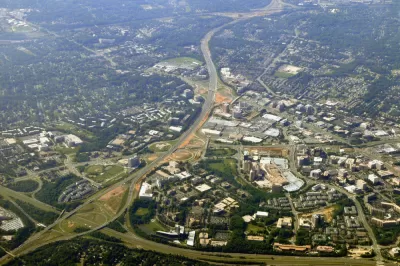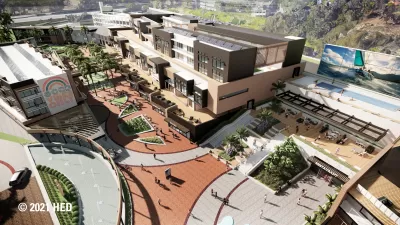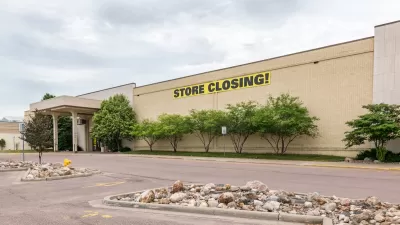As e-commerce boomed and people sought outdoor shopping and dining options, the pandemic accelerated the decline of massive, merchandise-oriented retail spaces and indoor malls.

Longtime East Coast retail hub Tysons is experiencing major changes as the retail world adapts to the growing role of e-commerce and the disruptions brought on by the pandemic. According to an article by Jon Banister, "A series of new moves in the market, from longtime store closures to first-time openings to mall redevelopments, highlight how the Northern Virginia edge city is entering a new generation of its retail life cycle."
As part of the changes, older stores losing out to e-commerce will be replaced by service-oriented businesses like fitness centers and coffeeshops. With close to 70 percent of its retail space located within a quarter-mile of transit, Tysons has become a destination for shoppers from around the region. Meanwhile, the area's largest mall is continuing to redevelop its facilities for mixed use, building high-rise residential and office spaces on the site of former department stores, and new retailers are expressing significant interest in spaces near new transit stops.
As the popularity of indoor malls declines, cities and property owners are seeking new ways to adapt sprawling retail spaces and surface parking lots to denser, more transit-oriented uses. At the same time, the COVID-19 pandemic highlighted the need for outdoor dining spaces and public parks, which will provide public health and economic benefits long after the pandemic.
FULL STORY: With Store Closures, Mall Redevelopments, Tysons Retail Enters A New Generation

Planetizen Federal Action Tracker
A weekly monitor of how Trump’s orders and actions are impacting planners and planning in America.

Restaurant Patios Were a Pandemic Win — Why Were They so Hard to Keep?
Social distancing requirements and changes in travel patterns prompted cities to pilot new uses for street and sidewalk space. Then it got complicated.

Map: Where Senate Republicans Want to Sell Your Public Lands
For public land advocates, the Senate Republicans’ proposal to sell millions of acres of public land in the West is “the biggest fight of their careers.”

Maui's Vacation Rental Debate Turns Ugly
Verbal attacks, misinformation campaigns and fistfights plague a high-stakes debate to convert thousands of vacation rentals into long-term housing.

San Francisco Suspends Traffic Calming Amidst Record Deaths
Citing “a challenging fiscal landscape,” the city will cease the program on the heels of 42 traffic deaths, including 24 pedestrians.

California Homeless Arrests, Citations Spike After Ruling
An investigation reveals that anti-homeless actions increased up to 500% after Grants Pass v. Johnson — even in cities claiming no policy change.
Urban Design for Planners 1: Software Tools
This six-course series explores essential urban design concepts using open source software and equips planners with the tools they need to participate fully in the urban design process.
Planning for Universal Design
Learn the tools for implementing Universal Design in planning regulations.
Heyer Gruel & Associates PA
JM Goldson LLC
Custer County Colorado
City of Camden Redevelopment Agency
City of Astoria
Transportation Research & Education Center (TREC) at Portland State University
Camden Redevelopment Agency
City of Claremont
Municipality of Princeton (NJ)





























